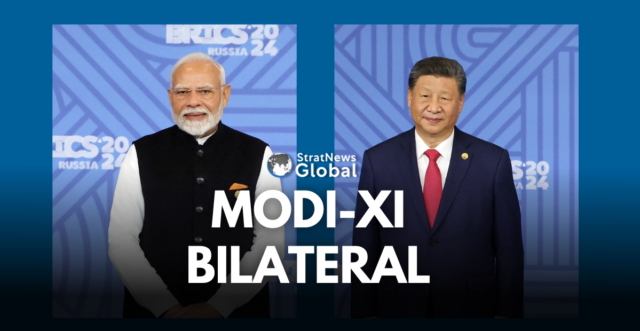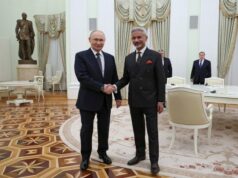Indian Prime Minister Narendra Modi and Chinese President Xi Jinping held their first formal talks in five years on Wednesday, marking a potential thaw in relations after the deadly 2020 military clash in the Himalayas. The two leaders met on the sidelines of the BRICS summit in Kazan, Russia, signalling a step forward after years of tension.
The meeting comes just days after India and China reached a deal to resolve the four-year military standoff along their disputed Himalayan border, an issue that has strained ties between the two nuclear-armed neighbours. This marks a significant development, as diplomatic efforts had been ongoing since the deadly clash in 2020 that resulted in the deaths of 20 Indian and 4 Chinese soldiers.
Border Deal And Easing Military Tensions
Relations between India and China have been tense since the Ladakh clashes, with both countries significantly increasing their military presence along the icy, disputed frontier. The talks between Modi and Xi were prompted by a breakthrough in border negotiations, with both sides reaching a deal to ease tensions at the Line of Actual Control (LAC).
Though details of the agreement remain undisclosed, an Indian military source indicated that both nations will now patrol contested points along the frontier according to an agreed schedule, aiming to prevent further confrontations. This move is seen as a critical step towards easing military tensions and could pave the way for further improvements in political and economic relations.
Diplomatic And Economic Impact
Wednesday’s talks come after years of limited interaction between the two leaders, with their last formal summit taking place in 2019. While they have had brief encounters at global events, including the G20 summit in 2022 and the BRICS summit in 2023, these meetings did not signal major progress in relations.
India had made improving broader political and economic ties contingent upon resolving the border standoff. As a result, the latest meeting between Modi and Xi could open the door for renewed Chinese investment in India. Since the Ladakh clash, New Delhi had restricted investments from China, blocked direct flights, and limited visa issuance to Chinese nationals.
Although more details of the border pact have yet to be revealed, the resumption of talks between the two leaders may be a turning point for the relationship between the world’s two most populous nations.
(With Inputs from Reuters)
Research Associate at StratNewsGlobal, A keen observer of #China and Foreign Affairs. Writer, Weibo Trends, Analyst.
Twitter: @resham_sng





